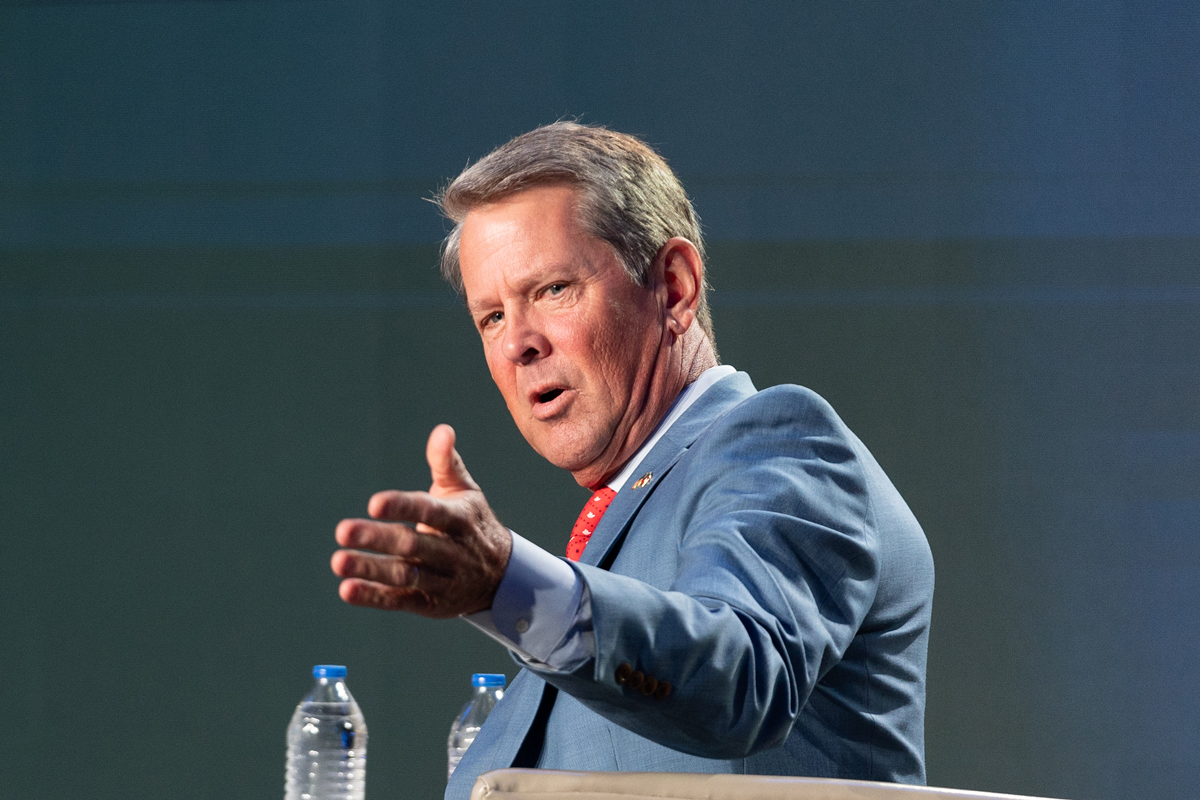
Photograph by Megan Varner/Getty Images
Emory University political science professor Dr. Andra Gillespie and I arranged to meet at a Kirkwood coffee bar this past Monday morning so I could get her insights about the challenges Democratic U.S. Senator Jon Ossoff is likely to face as he stands for re-election next November. As Gillespie is one of the most astute observers of Georgia and national politics, I was eager to hear her thoughts.
The starting point for our conversation was our shared understanding that the party out of power tends to have an advantage in a non-presidential year, as 2026 will be. And we agreed that Democratic candidates in races across the country could be helped if President Donald Trump’s approval ratings continue to sink—which is certainly not a sure bet.
But Gillespie pointed out that the dynamics that might favor Democrats elsewhere would matter less for Ossoff under one particular scenario: If Governor Brian Kemp declared he intended to jump into the race.
“Kemp is extremely well-known and popular, with his own track record to run on and one that a lot of Georgians approve of,” Gillespie said. As proof, she pointed to a recent Atlanta Journal-Constitution poll showing Kemp’s approval rating among Georgians at 60 percent. What’s more, among those polled, he was viewed positively by a third of Democratic voters and was looked upon favorably by many independents. The poll also showed that compared to other GOP candidates who have been considering entering the race, Kemp was the only one in a virtual tie with Ossoff, while others lagged far behind.
Ironically, an hour after Gillespie and I went our separate ways, AJC political reporter Greg Bluestein scored a major scoop when he reported Kemp had told him that despite pressure from national and state Republican Party leaders, he was ruling out a run for the senate next year.
Kemp’s next steps are mere speculation at this point. He’s mentioned frequently as a possible candidate for president in 2028. In the meantime, he can play a key role in supporting Republican candidates around the country next year. He has a massive war chest he can dip into to support Republican efforts in key states. And given his enormous popularity within GOP ranks and as chair of the Republican Governors’ Association, he’ll be in demand as a surrogate for candidates in a variety of statewide and congressional general election races across the country. Those are important steps toward building a national network of support for a potential presidential race.

Photograph by Megan Varner/Getty Images
If Kemp’s announcement gave Ossoff a surge of hope that his battle to win re-election had become less fraught, Gillespie wrote me a note dispelling that notion right after we both learned of Kemp’s decision. “We should have met an hour later,” she joked, but went on to predict Ossoff will still have a tough fight on his hands. For one thing, there are now more Republican voters in Georgia than Democrats. And in the 2024 election, Republicans proved that they’ve built a get-out-the-vote machine that eclipsed what Democrats had accomplished in previous elections.
As for the AJC poll showing Ossoff with substantial leads in the hypothetical match-ups with potential candidates Marjorie Taylor Greene, insurance commissioner John King, and secretary of state Brad Raffensperger, Gillespie noted: “Just because Ossoff is leading other Republicans by double-digit margins right now doesn’t mean that the lead will hold for the next 16 months.”
“He should assume that next year’s senate nominee will not be as compromised as Herschel Walker was in 2022,” she added. “None of the [possible candidates in the AJC poll] are novices, and none of them are as gaffe and scandal-prone as Walker was.”
Bill Nigut has covered Georgia politics for more than 40 years, working as a reporter at Channel 2 News and at GPB as the host of Political Rewind. Most recently, he was a cohost of Politically Georgia for the Atlanta Journal-Constitution and WABE.
Advertisement




